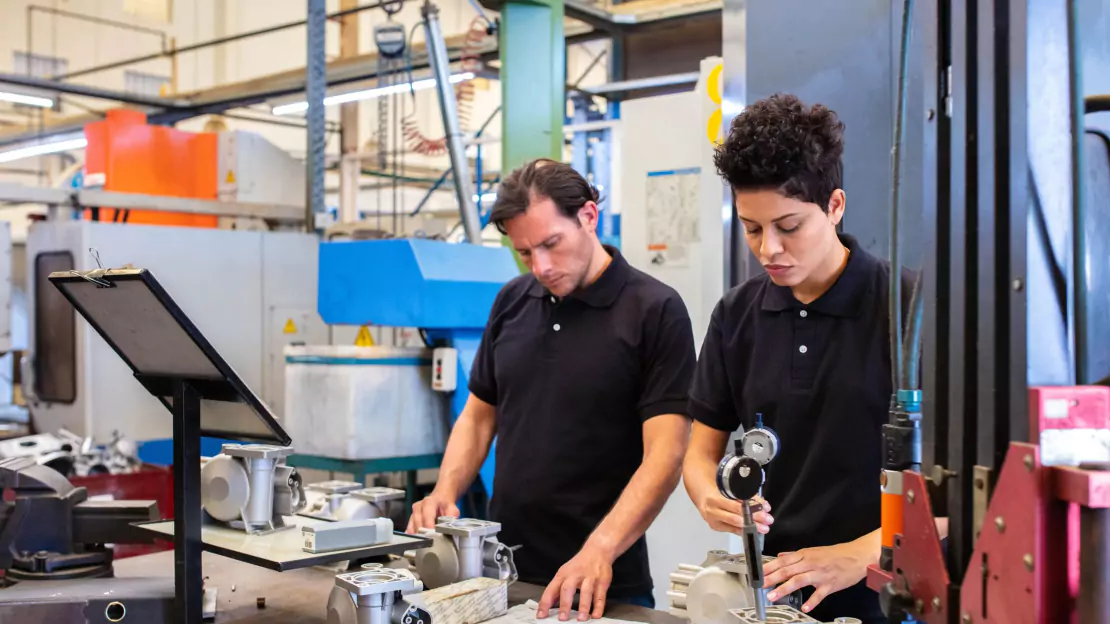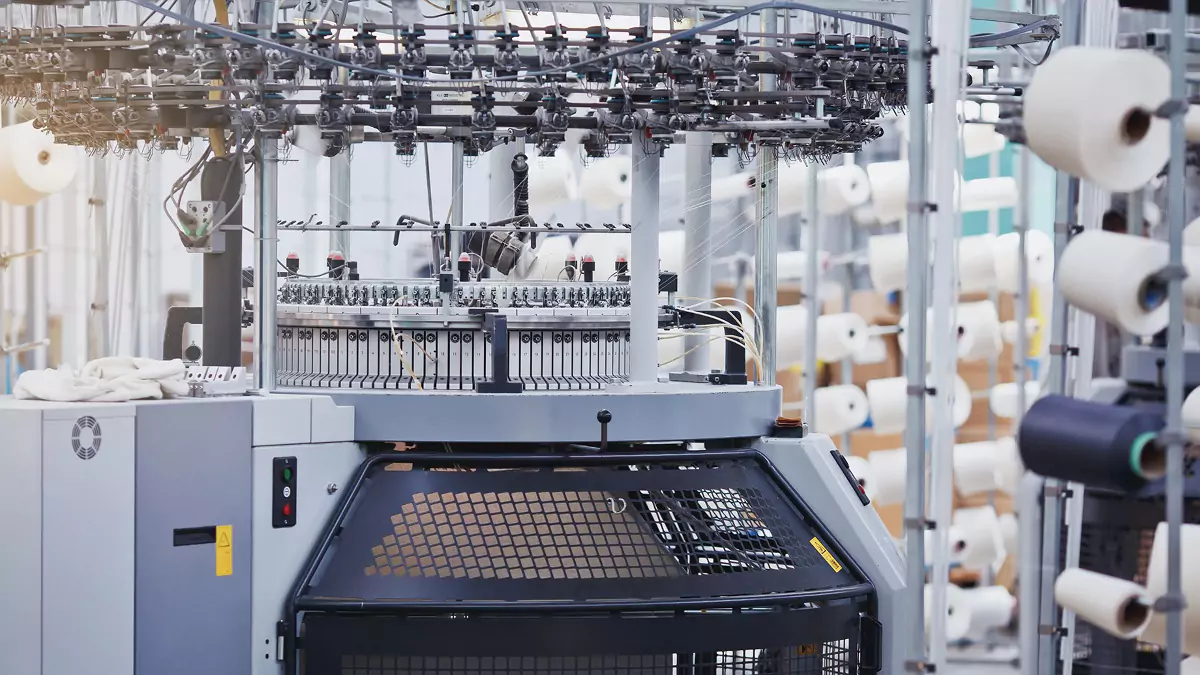Top 4 Challenges Facing Manufacturers in 2025

Authored by: Glen Erdman — Director, EA | Date Published: October 16, 2024
The American manufacturing industry is not just a vital part of the economy, it’s the backbone, driving innovation, job creation, and exports. As we look toward 2025, manufacturers face a future marked by technological advancements, new regulations, and changing global conditions. Your ability to adapt to these changes will not only determine your success but also shape the future of our economy. MBE CPAs can provide businesses with financial guidance, experience-based strategies, and valuable information to help them surmount these challenges.
These are the four key challenges manufacturers may face in 2025 and how we can work together to overcome them.
Featured Topics:
1. Supply Chain Disruptions
The global supply chain remains fragile, with disruptions continuing to impact manufacturing. Material shortages, increased shipping costs, and geopolitical tensions are expected to persist into 2025. Manufacturers that rely on just-in-time inventory strategies or specific foreign suppliers face significant risk, as a single disruption can halt production and affect revenue.
How MBE CPAs Can Help:
Our experience and knowledge in the manufacturing industry can help you develop more resilient supply chain strategies. This includes:
- Supply Chain Risk Analysis:
Identifying vulnerabilities in the supply chain and offering risk mitigation tactics, such as diversifying suppliers or implementing inventory management techniques.
- Cost Accounting for Supply Chain Optimization:
Utilizing cost accounting techniques to analyze the true cost of disruptions and inefficiencies. By understanding these costs, manufacturers can decide whether to invest in domestic sourcing or alternative transportation methods.
- Cash Flow Management:
With disruptions affecting delivery schedules, manufacturers may struggle with uneven cash flow. We can create cash flow forecasts that account for these challenges, helping manufacturers maintain liquidity during turbulent times.
2. Labor Shortages and Workforce Development
Labor shortages are a persistent and stressful issue for U.S. manufacturers, exacerbated by an aging workforce and the skills gap in industries that require specialized technical knowledge. As the demand for automation and advanced manufacturing processes grows, finding workers with the necessary skills in robotics, artificial intelligence, and machine learning is becoming more difficult.
How MBE CPAs Can Help:
We can help manufacturers tackle labor shortages through various methods:
- Workforce Planning and Development:
We can help manufacturers identify tax credits and incentives for training and hiring programs, such as the Work Opportunity Tax Credit (WOTC). We can also develop workforce plans that include apprenticeships, partnerships with local trade schools, and retraining initiatives.
- Compensation and Benefits Strategy:
Through our affiliated HR consulting company, Workforce Solutions, we can analyze the competitiveness of a manufacturer’s compensation and benefits package to attract top talent without inflating labor costs.
- Automation and Investment in Technology:
Automation can be worthwhile if labor shortages remain unresolved. We can assist manufacturers in assessing the financial practicality of robotics and other technologies, including advising on tax incentives like Section 179 deductions for equipment purchases.

3. Technological Innovation and Industry 4.0
The manufacturing industry is advancing with the adoption of Industry 4.0 technologies such as automation, artificial intelligence (AI), and the Internet of Things (IoT). However, many manufacturers struggle to keep up with technological innovation due to the high costs associated with implementing and integrating these technologies into existing operations.
How MBE CPAs Can Help:
As a mid-sized, national firm that specializes in accounting for manufacturers, we offer guidance on cost-effectively embracing digital transformation:
- Financial Planning for Technological Investment:
Investing in new technologies requires careful financial analysis and planning. We can help manufacturers create budgets and financing strategies that align with their long-term goals, making allocating resources for digital transformation easier.
- ROI Analysis of New Technologies:
We can provide data-driven assessments of the return on investment (ROI) for implementing technologies such as AI-driven production systems or IoT-enabled equipment. Identifying which technologies offer the most value, we help manufacturers prioritize their investments more effectively.
4. Regulatory and Tax Compliance
The regulatory environment for manufacturers is continually changing, with upcoming changes to tax laws, tariffs, and trade policies. Complying with these regulations can be particularly challenging for small to mid-sized manufacturers that may not have the resources to maintain in-house compliance teams. Non-compliance can result in financial penalties and missed opportunities for tax savings.
How MBE CPAs Can Help:
Leaning on our manufacturing experience and knowledge, we help manufacturers remain compliant with the latest regulations while increasing tax-saving opportunities:
- Tax Planning and Optimization:
With experience in manufacturing-specific tax regulations, we help manufacturers minimize tax liabilities through proactive planning. This includes taking advantage of options such as the Research and Development (R&D) tax credit, Section 45X tax credit, and the Domestic Production Activities Deduction (DPAD).
- Audit and Assurance Services:
Manufacturers are frequently subject to audits for tax compliance or industry-specific regulations. We provide audit services to help manufacturers prepare for potential compliance issues and address them proactively.

Conclusion
U.S. manufacturers will face significant challenges in 2025, from labor shortages and supply chain disruptions to the pressures of sustainability and regulatory compliance. However, with the right strategies and experienced insight from MBE CPAs, manufacturers can overcome these challenges and position themselves for long-term success.
